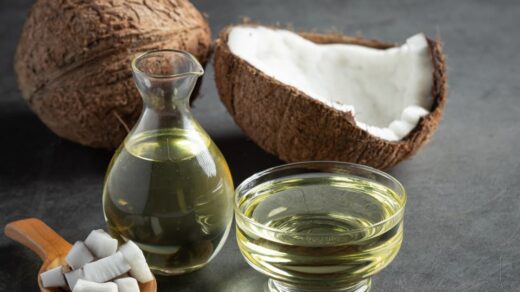Have you ever wondered about the creamy, rich milk that comes from buffaloes? You’re not alone! More and more people are discovering the unique taste and benefits of buffalo milk.
In this guide, we’ll dive deep into the world of buffalo milk, exploring everything from its nutritional value to its potential health benefits.
Buffalo milk isn’t just another dairy option – it’s a nutritional powerhouse that’s been enjoyed for thousands of years in many parts of the world.
Whether you’re a health enthusiast, a curious foodie, or someone looking for alternatives to cow’s milk, this guide has something for you.
WellHealthOrganic Buffalo Milk Tag

We’ll explore the WellHealthOrganic Buffalo Milk Tag, breaking down what makes this milk special and why it might be a great addition to your diet.
From its rich protein content to its creamy texture, we’ll cover all the bases.
We’ll also compare it to cow’s milk, discuss its potential benefits and downsides, and answer some common questions.
So, grab a glass of milk (buffalo or otherwise), and let’s embark on this creamy adventure together. By the end of this guide, you’ll be a buffalo milk expert!
What is Buffalo Milk?
Buffalo milk is exactly what it sounds like – milk that comes from buffaloes. But we’re not talking about just any buffaloes!
This creamy drink comes from water buffaloes, those big, friendly animals you might have seen in pictures from countries like India or Pakistan.
People have been enjoying buffalo milk for thousands of years. It’s a staple in many parts of Asia, where water buffaloes are common farm animals.
What makes buffalo milk special is its rich, creamy texture and slightly sweet taste.
Compared to cow’s milk, buffalo milk is thicker and creamier. This is because it has more fat and protein.
If you’ve ever tasted buffalo milk, you might have noticed it feels more filling and has a stronger flavor than the milk you’re used to.
Here’s a quick comparison between buffalo milk and cow’s milk:
| Characteristic | Buffalo Milk | Cow’s Milk |
|---|---|---|
| Fat Content | Higher | Lower |
| Protein Content | Higher | Lower |
| Texture | Thicker, creamier | Thinner |
| Color | Whiter | Slightly yellowish |
| Taste | Richer, slightly sweet | Milder |
Buffalo milk isn’t just for drinking – it’s also great for making dairy products like cheese, yogurt, and ice cream. Its high-fat content makes these products extra creamy and delicious!
Nutritional Value of Buffalo Milk
Now, let’s talk about what’s inside buffalo milk. It’s packed with good stuff that your body needs. Here’s a breakdown of what you’ll find in 100 grams (about half a cup) of buffalo milk:
| Nutrient | Amount per 100g |
|---|---|
| Protein | 4.5 g |
| Fats | 8.5 g |
| Carbohydrates (Lactose) | 4.5 g |
| Water | 83 g |
| Energy | 100 kcal |
| Calcium | 178.5 mg |
| Phosphorus | 110 mg |
| Potassium | 178 mg |
| Iron | 0.16 mg |
| Magnesium | 18 mg |
| Sodium | 36 mg |
As you can see, buffalo milk is rich in protein, fats, and important minerals like calcium and phosphorus. These nutrients are crucial for keeping your body healthy and strong.
But that’s not all! Buffalo milk also contains various vitamins. Here’s a look at some of the vitamins you’ll find in buffalo milk:
| Vitamin | Amount (mg/L) |
|---|---|
| Vitamin A | 0.4 |
| Vitamin D | 0.001 |
| Vitamin B1 (Thiamine) | 0.4 |
| Vitamin B2 (Riboflavin) | 1.7 |
| Vitamin B6 | 0.6 |
| Vitamin E | 1.0 |
| Vitamin B12 | 0.005 |
| Vitamin C | 20 |
| Folic Acid | 0.05 |
These vitamins play important roles in your body, from helping your eyes work well (Vitamin A) to keeping your immune system strong (Vitamin C).
Buffalo Milk vs. Cow’s Milk: A Nutritional Comparison
You might be wondering how buffalo milk stacks up against the more common cow’s milk. Let’s compare them side by side:
| Nutrient (per 100 ml) | Buffalo Milk | Cow’s Milk |
|---|---|---|
| Carbohydrates (Lactose) | 4.5 g | 5.0 g |
| Protein | 4.5 g | 3.5 g |
| Fat | 8.5 g | 5.0 g |
| Calcium | 178.5 mg | 120 mg |
| Magnesium | 12 mg | 18 µg |
| Phosphorous | 88 mg | 110 mg |
| Cholesterol | 3.6 mg | 3.0 mg |
As you can see, buffalo milk has:
- More protein: This is great for building and repairing muscles.
- More fat: This makes it creamier and gives it a richer taste.
- More calcium: This is important for strong bones and teeth.
- Slightly less carbohydrates: This might be good if you’re watching your carb intake.
The higher fat content in buffalo milk is why it’s often used to make rich, creamy dairy products like cheese and ice cream.
Benefits of Buffalo Milk
Now that we know what’s in buffalo milk, let’s talk about how it can be good for you. Here are some of the main benefits:
- Helps Keep Your Bones Strong Buffalo milk is packed with calcium and other minerals that your bones need to stay strong. Drinking it regularly might help prevent conditions like osteoporosis, where bones become weak and brittle.
- Good for Your Heart Even though buffalo milk has more fat than cow’s milk, some of these fats are good for your heart. It contains something called CLA (Conjugated Linoleic Acid) which might help protect your heart.
- Boosts Your Immune System Buffalo milk is rich in vitamins A, E, and C. These vitamins help your body fight off germs and keep you healthy.
- Might Help with Weight Gain If you’re trying to put on some weight, buffalo milk could help. Its high fat and protein content can support muscle growth and healthy weight gain.
- Good for Your Skin The vitamins in buffalo milk are great for your skin. Some people even use it in face masks for glowing skin!
- Helps with Digestion Buffalo milk contains magnesium and probiotics, which can help keep your digestive system running smoothly.
- Might Help Control Blood Sugar Some studies suggest that buffalo milk might help regulate blood sugar levels, which could be good news for people with diabetes.
Potential Downsides of Buffalo Milk
While buffalo milk has many benefits, it’s important to know that it might not be the best choice for everyone. Here are some potential downsides to consider:
- High in Calories Buffalo milk has more calories than cow’s milk. If you’re trying to lose weight or watch your calorie intake, you might need to be careful about how much you drink.
- Lactose Content Like cow’s milk, buffalo milk contains lactose. If you’re lactose intolerant, you might have trouble digesting it.
- Allergies Some people are allergic to the proteins in milk. If you’re allergic to cow’s milk, you might also be allergic to buffalo milk.
- Not Easily Available In many parts of the world, buffalo milk isn’t as easy to find as cow’s milk. It might also be more expensive.
- Digestive Issues Some people might experience bloating, gas, or diarrhea when they drink buffalo milk, especially if they’re not used to it.
FAQs:
Let’s address some common questions about buffalo milk:
- Q: Can we drink buffalo milk daily?
A: Yes, you can drink buffalo milk every day if you don’t have any milk allergies or lactose intolerance. But remember, it’s high in calories, so drink it in moderation if you’re watching your weight.
- Q: Which is better: cow milk or buffalo milk?
A: Both have their benefits. Buffalo milk has more nutrients, but it’s also higher in calories. The best choice depends on your personal health needs and goals.
- Q: Why do Indians drink buffalo milk?
A: Buffalo milk has been a part of Indian diets for thousands of years. It’s widely available in India and is used to make many traditional dairy products.
- Q: Who should not drink buffalo milk?
A: People who are lactose intolerant, allergic to milk proteins, or on a strict low-fat diet should avoid or limit buffalo milk.
- Q: Should we boil buffalo milk?
A: Yes, it’s a good idea to boil buffalo milk before drinking it. This kills any harmful bacteria and makes the milk safer to drink.
- Q: Does buffalo milk increase fat?
A: Because it’s high in fat and calories, drinking too much buffalo milk could lead to weight gain if you’re not careful.
- Q: Which milk is best for health?
A: The best milk for you depends on your individual health needs. Buffalo milk is very nutritious, but it’s also high in calories. Cow’s milk, goat’s milk, and plant-based milks all have their own benefits.
- Q: Which milk has high protein?
A: Buffalo milk has more protein than cow’s milk. It’s a good choice if you’re looking to increase your protein intake.
- Q: Is buffalo milk good for health?
A: Yes, buffalo milk can be very good for health. It’s rich in nutrients that support bone health, heart health, and immune function. But like all foods, it should be consumed as part of a balanced diet.
- Q: What are the side effects of buffalo milk?
A: Some people might experience digestive issues like bloating or diarrhea, especially if they’re not used to drinking buffalo milk. If you’re lactose intolerant or allergic to milk proteins, you might have more serious side effects.
- Q: Is it safe to drink buffalo milk during pregnancy?
A: Buffalo milk can be safe during pregnancy if it’s pasteurized (heat-treated to kill harmful bacteria). But every pregnancy is different, so it’s best to check with your doctor about what’s right for you.
Conclusion:
Buffalo milk is a nutritious drink that’s been enjoyed for thousands of years.
It’s packed with protein, vitamins, and minerals that can support your health in many ways. From stronger bones to better heart health, buffalo milk has a lot to offer.
But it’s not for everyone. If you’re watching your weight, are lactose intolerant, or have milk allergies, you might need to be careful with buffalo milk or avoid it altogether.
Remember, the best diet is one that works for you and your body. If you’re thinking about adding buffalo milk to your diet, it might be a good idea to start with small amounts and see how your body reacts.
As always, if you have any concerns about your diet, it’s best to talk to a healthcare professional.
Whether you’re a fan of buffalo milk or just curious about it, we hope this guide has given you a better understanding of this creamy, nutritious drink. Here’s to your health!
More Health Guides:
- Redwopung Tea
- Coconut Oil Morning Empty Stomach Benefits
- The://vital-mag.net Blog



